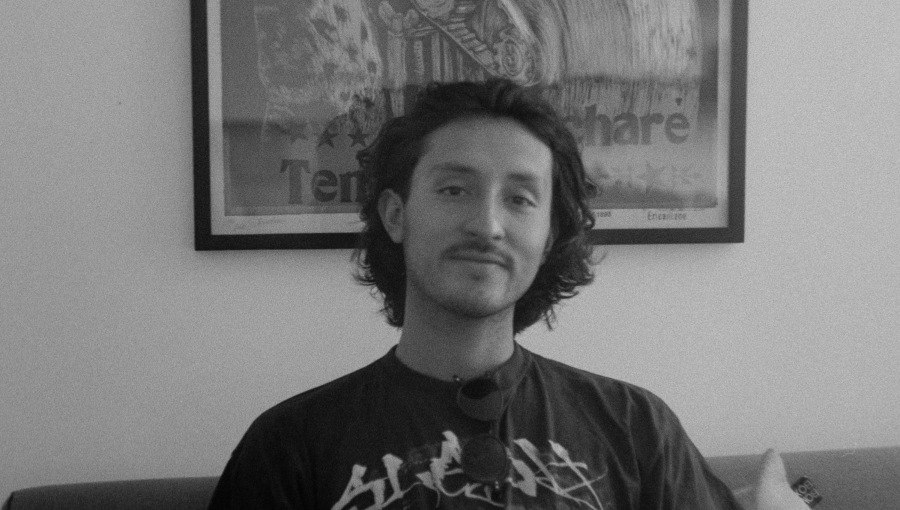A Career at the Museum: Student Djuna Carlton
Djuna Carlton is an Art History major from Taos, New Mexico. Growing up, she was interested in art, mythology and history. In October 2019, Djuna received the America Award by the Italy-USA Foundation for her academic achievements and service to the university community. Djuna wishes to pursue a career in museums, focusing on the growing trend of US museums becoming accountable for possessing looted objects, a topic that she became interested in after an internship at the University of Pennsylvania Museum of Archaeology and Anthropology.

Djuna Carlton
What are the advantages of studying Art History in Rome?
I came to JCU when I was seventeen in 2016 and after only one semester taking art history classes, I was hooked. Studying Roman Art History in Rome with a minor in Classical Studies is unbeatable. The simple pleasure of attending a class in the Roman forum or traveling forty-five minutes to spend an afternoon in an ancient city is amazing. The professors I have met here have changed my life. Namely, Professors Hansen, Salvadori, Govero, Corrado, and Georgi have been amazing for my learning and growth. Their classes have completely changed the way I understand not only the world in every era but also the way I understand human interaction and instinct. My classmates are diverse, ranging in origin from Southern California to Moscow to Nicaragua. In every class, almost every student has a unique perspective and a simple discussion can lead to a broad and friendly comparison of cultural equivalencies or incongruities.
You are interested in museums becoming accountable for possessing looted objects. Where did this interest come from?
After a summer internship at the University of Pennsylvania Museum of Archaeology and Anthropology, I discovered my interest in working in museums and began to delve into that possibility further. However, museums (especially in the United States) are at a crucial moment of change, with very large ethical questions hanging above their institutional traditions and scholarship. Between working at UPenn and taking Professor Corrado’s Art Crime class at JCU, I found a deep interest in this issue. Many of the objects in US museums are obtained by dubious means and often arrive in the US through smuggling activities and sales. Additionally, many objects in US museums are the result of colonial actions and intentions, especially in the case of Native American objects. This is a well-known phenomenon and a harm to cultures around the world that people have been trying to rectify since the 70s. It is only recently that institutions have started acknowledging these issues, with some museums even hiring people to research the origin of questionable objects in their collections.
For me the question is: What can we do to preserve museums as places of learning and cultural appreciation, without appropriating, stealing, or misrepresenting the cultures they display? This could be as simple as making sure to acknowledge the colonial past of objects on museum labels and as complicated as contacting the objects’ home country and starting repatriation proceedings. These possible actions, and several other possibilities, have to be case by case and would ultimately build healthier inter-cultural relations and support dignified cultural representations in museums.
What’s your ultimate career goal?
I would never have reached this perspective on museum acquisition and archiving in the US if I had not first spent three and a half years in Italian museums, with Italians, talking about their cultural heritage and witnessing firsthand the great pride they feel when they see something dug up from their hometown. Italy is overflowing with artifacts, and while the museums are packed, there are still more historical treasures to be found.
Is it possible to ensure that these discoveries will be bought and sold legally and maintain their legacy and background information for scholarship? Is it possible for Native American artifacts to be shown with dignity and agency and perhaps support a greater respect towards their cultures and acknowledgment of the travesties of colonial America against them? I believe that these questions will only gain traction and importance in the upcoming years and I would like to participate in this discourse.
Do you have any advice for prospective students?
Attending John Cabot has exposed me to new concepts and emerging fields of study. Additionally, the professors I have encountered have done everything they can to support my curiosity, wherever it may take me. The Art History department is particularly close-knit, with regular department trips and events. The student-led Art History Society is incredibly active and my participation in it has allowed me to explore all of the fabulous places in and around Rome.
If you attend John Cabot, get involved! Befriend your classmates, try to go to a museum every weekend, and let your professors know what interests you! Odds are that they have a similar interest and can help you turn an abstract idea formed from a couple of years of college into a real career or life-long interest.





